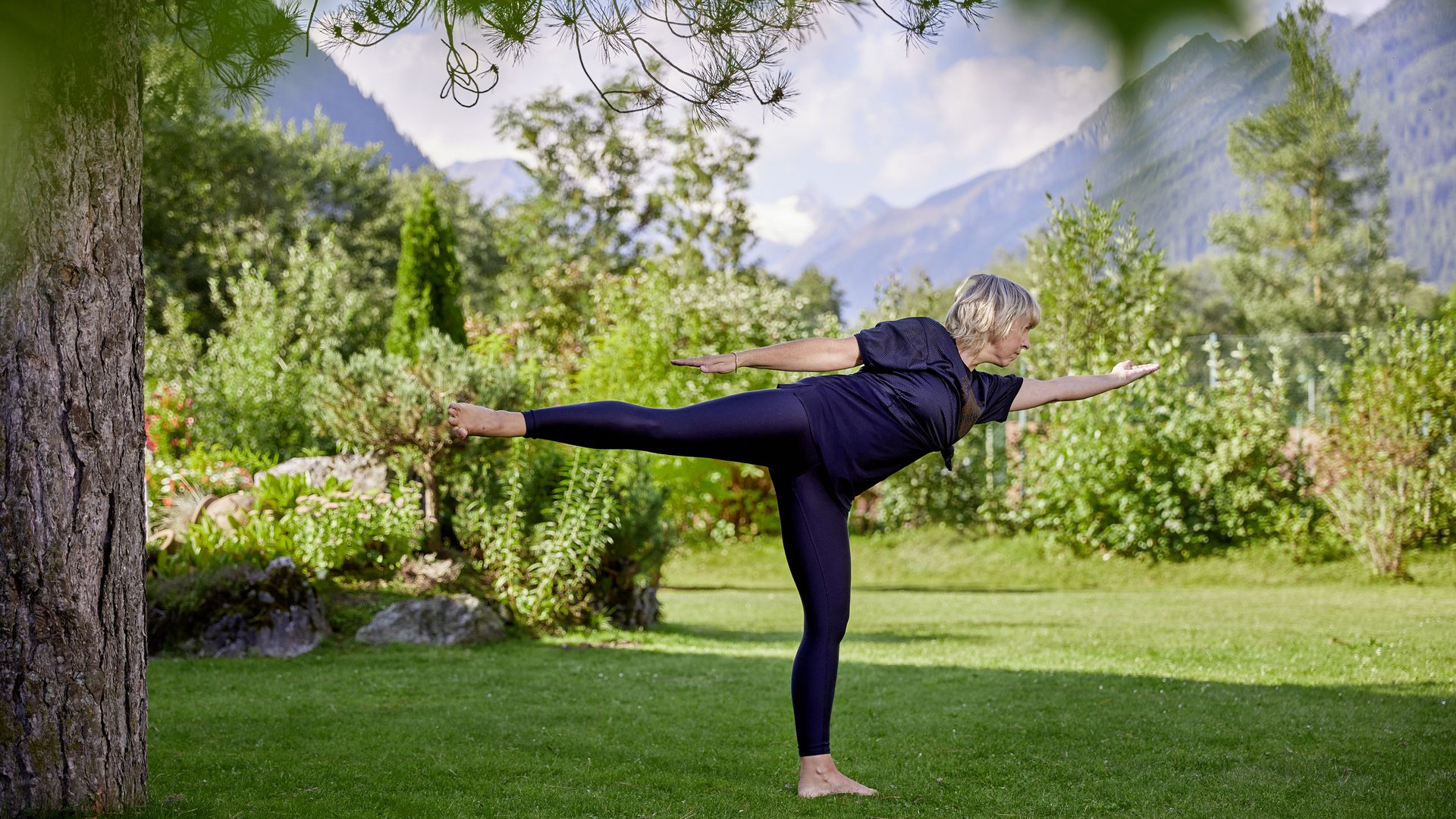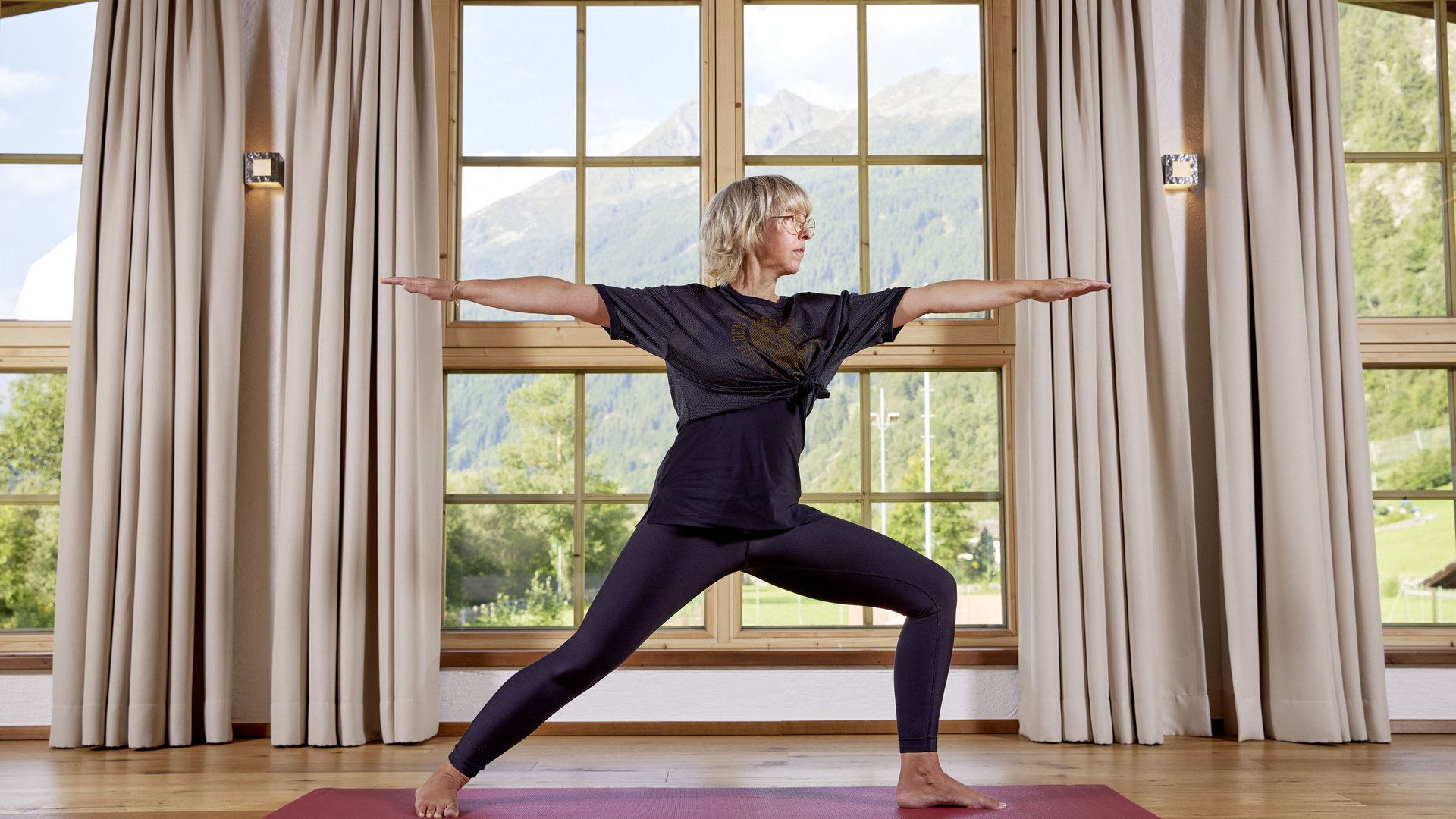Discover the benefits of yoga at our hotel in Tyrol
Are you a yoga enthusiast, or are you curious to try this calming practice originating in ancient Eastern traditions? A stay at the Jagdhof is an ideal opportunity to practise yoga at our hotel in Tyrol against the serene backdrop of the majestic mountains. Here, we provide all the information you need about this fascinating topic.
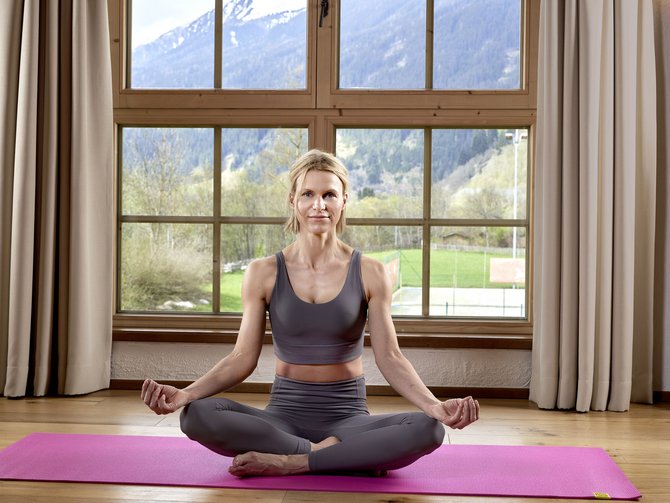
What exactly is yoga?
Yoga is a practice and a holistic philosophy of life that originated in India. It is all about harmonising body, mind, and soul. This is achieved through a combination of physical exercises, breathing techniques, and meditation. Yoga sessions aim to promote physical, mental, emotional, and spiritual well-being.
Yoga has gained global popularity in recent decades, yet its origins extend back thousands of years to ancient Indian scriptures, especially the Vedas, written between 1500 and 500 BC. The word “yoga” derives from Sanskrit, meaning “union”, which reflects its original purpose as a spiritual practice to unify body, mind, and soul. This holistic approach is still embraced by modern yoga practitioners.
It’s important to recognise that yoga is not merely a form of physical exercise but a comprehensive approach to enhancing overall well-being. There are various paths of yoga catering to different aspects of life. Hatha yoga, known for its emphasis on physicality, includes poses (asanas), breath control (pranayama), and relaxation techniques that promote physical health. Bhakti yoga focuses on devotion and love for a higher power, expressed through chanting, singing, and gratitude. Given the many different yoga paths available, an experienced yoga instructor can provide valuable guidance and support.
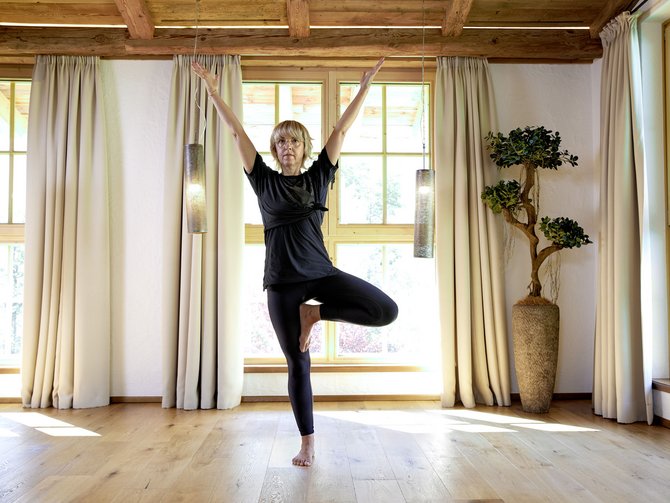
What happens during a yoga session?
In yoga, you practise a variety of postures known as asanas. You perform these asanas in conjunction with mindful breathing, synchronising each movement with a breath. In addition, yoga includes breathing exercises (pranayama) to control the breath and calm the mind, as well as meditation to promote inner peace and mental clarity. The yoga experts at our sustainable hotel in Austria will guide you through each session, ensuring you gain the maximum benefits from your practice.
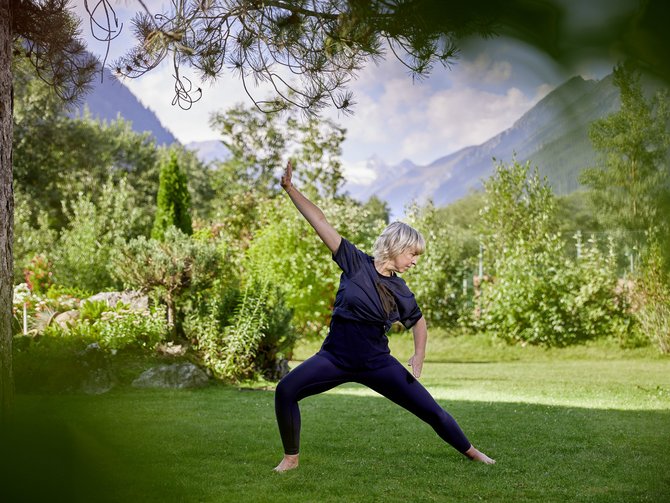
What is the purpose of yoga?
The primary goal of yoga is to foster harmony among body, mind, and soul, achieving a holistic sense of unity. With regular practice, yoga aims to improve physical health, mental clarity, emotional stability, and spiritual growth, while also encouraging mindfulness, compassion, and self-acceptance. Take the opportunity to experience a tranquil yoga journey during your stay at our 5-star hotel in Stubaital.
How does yoga transform the body?
How many times a week should I practise yoga?
Who can practice yoga?
Yoga or Pilates: which is better?
Pilates: focus on core strength and stability
Where can you practise yoga?
What do you need for yoga?
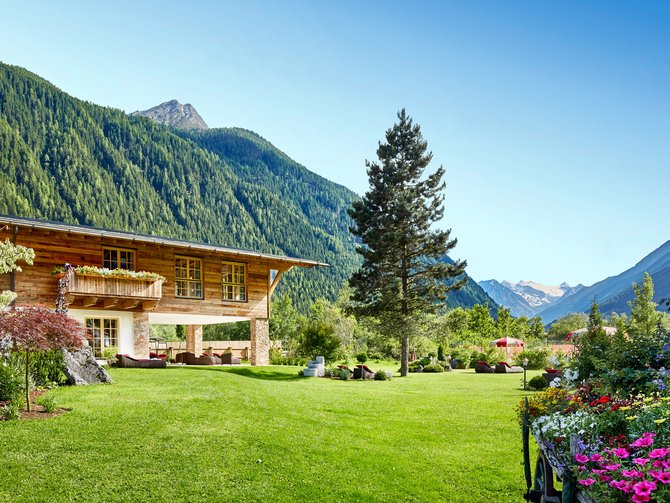
Is there a yoga hotel in Austria?
Absolutely! A stay at the Spa Hotel Jagdhof is the perfect chance to start, enhance, or deepen your yoga practice. A yoga holiday in Austria promises a memorable experience surrounded by the beauty of nature. Picture this: you’re at your yoga hotel in Tyrol:
You’re practising your sun salutation in the expansive Jagdhof garden, with majestic peaks all around you. The Jagdhof provides an unparalleled setting for your yoga practice. The fresh mountain air, the soothing murmur of the stream, and the stunning view of the peaks help you feel deeply connected with nature, allowing you to achieve profound relaxation. Guided by experts, you’ll flow from one pose to the next, connecting with your breath and leaving the hustle and bustle of everyday life far behind with each inhale and exhale. Namaste!









